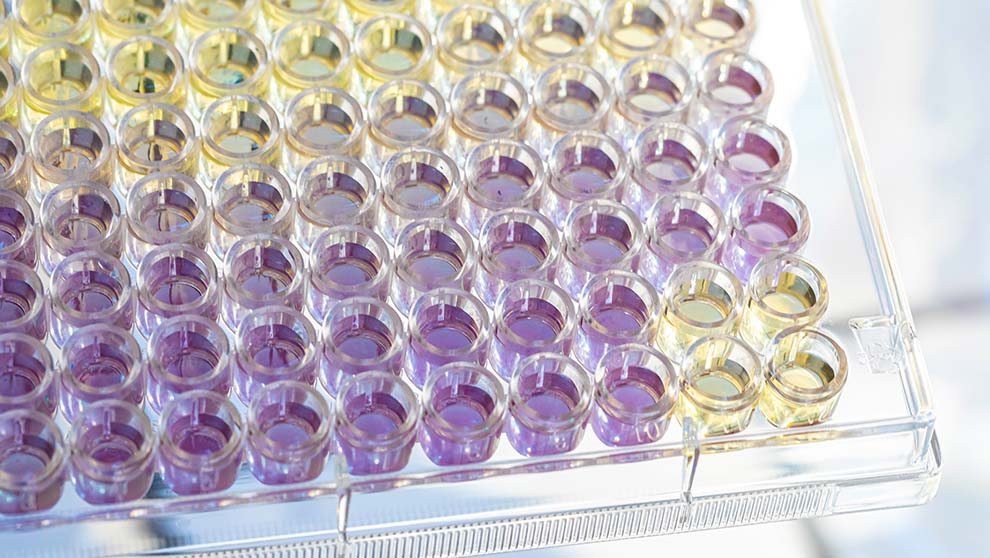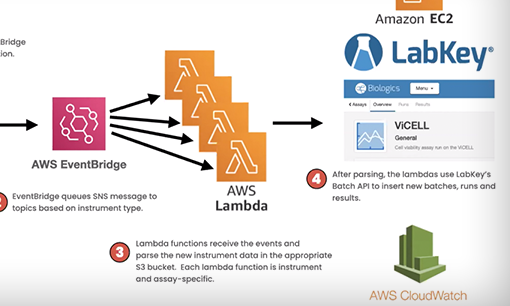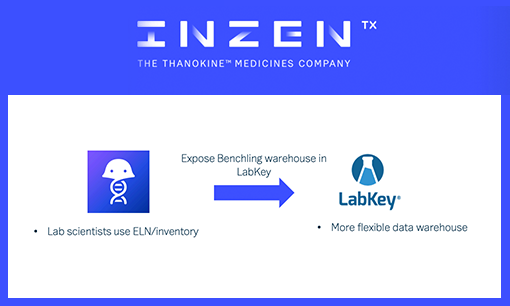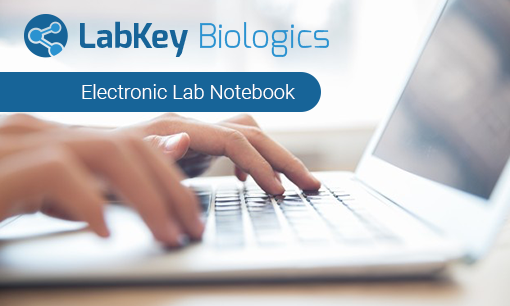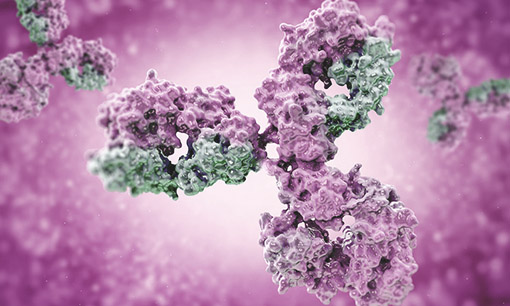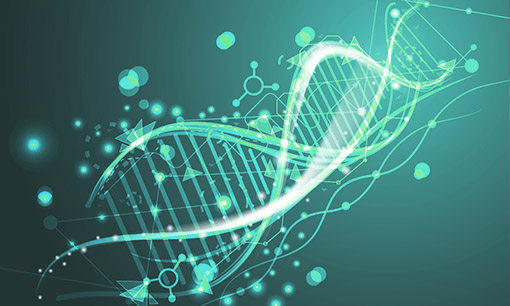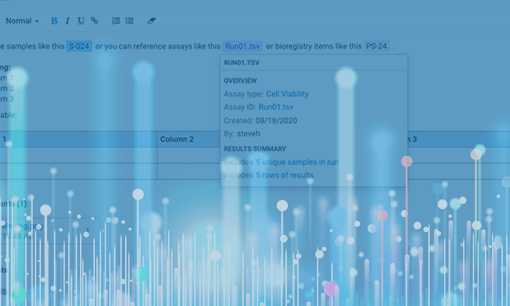Tag: Biologics LIMS
NIH Data Management & Sharing Policy
The biologics development process is a data-driven endeavor. A vast amount of data is generated from many teams with the hopes of answering questions and informing decision-making along the way. Centralizing this data and their analyses across experiments amplifies the power and impact that data has on biologics research and development.
Of course, centralizing biologics assay data means much more than simply storing data in the same place. Data centralization increases the value of biologics data beyond one particular experiment or result by defining data relationships. The ability to aggregate data across multiple samples, assays, and experiments, with metadata describing the relationship of all of these to each other, is where modern data science resides. Whereas the analysis of a single value from a single assay shows a distribution, joining that assay with others reveals a richer data landscape that is ripe for analysis. These data landscapes yield even more insights when they are related to one another across many controlled variables and conditions.
Below are more ways that implementing tools and strategies for data centralization can impact the speed and efficiency of biotherapeutic development.
Data Integrity
Having a single source of truth for data makes it easier for organizations to track how (and by whom) data is generated, accessed, and modified. With the assistance of a biologics data management application serving as a central hub- permissions, auditing, and backups provide control over how, when, where, and by whom data is used. Centralization of data also encourages standardization of data formats across research teams. Standardizing data structures helps validate the data being entered and helps preserve the relationships between data. This leads to downstream efficiency and maximizes the utility of experiments beyond the individual or team from which it was derived.
Collaboration
Centralizing biologics research data also helps promote collaboration between research teams. By storing data in one central location in standardized formats, scientists can easily find, compare and reference existing data in their research. A central repository for data also makes it much easier to see what data is missing or needed to inform decisions. Hand-offs of data are also made easier when all data is centrally stored.
About our Biologics LIMS
LabKey Biologics provides researchers with a set of tools to centralize biological entity registration, workflow management, and data exploration.
- Bioregistry – Register and track molecular entities, nucleotide sequences, protein sequences, expression systems, constructs, vectors, and cell lines
- Biologics Assay Management – Connect design data to related multi-dimensional assay results for a complete data landscape.
- Biologics Workflow Manager – Centrally manage biologics development workflows to help your team collaborate
- Electronic Lab Notebook – Highlight and connect your research entities and data with our biologics ELN
Click Here to take a tour of LabKey Biologics.
Antibody Development with Biologics LIMS
The biologics development process is a data-driven endeavor. A vast amount of data is generated from many teams with the hopes of answering questions and informing decision-making along the way. Centralizing this data and their analyses across experiments amplifies the power and impact that data has on biologics research and development.
Of course, centralizing biologics assay data means much more than simply storing data in the same place. Data centralization increases the value of biologics data beyond one particular experiment or result by defining data relationships. The ability to aggregate data across multiple samples, assays, and experiments, with metadata describing the relationship of all of these to each other, is where modern data science resides. Whereas the analysis of a single value from a single assay shows a distribution, joining that assay with others reveals a richer data landscape that is ripe for analysis. These data landscapes yield even more insights when they are related to one another across many controlled variables and conditions.
Below are more ways that implementing tools and strategies for data centralization can impact the speed and efficiency of biotherapeutic development.
Data Integrity
Having a single source of truth for data makes it easier for organizations to track how (and by whom) data is generated, accessed, and modified. With the assistance of a biologics data management application serving as a central hub- permissions, auditing, and backups provide control over how, when, where, and by whom data is used. Centralization of data also encourages standardization of data formats across research teams. Standardizing data structures helps validate the data being entered and helps preserve the relationships between data. This leads to downstream efficiency and maximizes the utility of experiments beyond the individual or team from which it was derived.
Collaboration
Centralizing biologics research data also helps promote collaboration between research teams. By storing data in one central location in standardized formats, scientists can easily find, compare and reference existing data in their research. A central repository for data also makes it much easier to see what data is missing or needed to inform decisions. Hand-offs of data are also made easier when all data is centrally stored.
About our Biologics LIMS
LabKey Biologics provides researchers with a set of tools to centralize biological entity registration, workflow management, and data exploration.
- Bioregistry – Register and track molecular entities, nucleotide sequences, protein sequences, expression systems, constructs, vectors, and cell lines
- Biologics Assay Management – Connect design data to related multi-dimensional assay results for a complete data landscape.
- Biologics Workflow Manager – Centrally manage biologics development workflows to help your team collaborate
- Electronic Lab Notebook – Highlight and connect your research entities and data with our biologics ELN
Click Here to take a tour of LabKey Biologics.
Does Your Biotech Startup Need a LIMS?

A key function of LabKey Biologics is assisting with antibody development and registration. Registration allows all data from antibody production processes to be associated with the candidate. It also allows for the optimization of processes at each stage of antibody development by facilitating the comparison of antibody experiment data.
Registering Antibodies and Components
To register antibodies, LabKey Biologics provides an easy-to-use Bioregistry. Users can add an antibody description, aliases, and details about the molecule’s lineage. Then, users select the components of this molecule, generally composed of one or more protein sequences, and finalize the stoichiometry. The Bioregistry verifies that this entity, defined by its components and their stoichiometry, has not previously been registered.
Users can also register molecules in bulk through the user interface, or via API. This includes support for importing GenBank files.
Tracking Component Relationships
Antibody development typically utilizes an expression system to produce samples of a molecule and its variations. LabKey Biologics stores key physical characteristics about registered molecules and presents users with captured information about its components, with linkage to the expression system from which it is derived. The relationship between an expression system and its target molecule can be determined from the construct, media, and gene inserts used in the expression system. Users are able to import biologics assay data for samples derived from that expression system for comparison and deeper analytics. When a user registers a new expression system in LabKey Biologics, the application makes an explicit connection between it and the molecule of interest. This relationship is valuable for visualizing and navigating between the related expression system data and the molecule data.
Antibody Development Workflow
Proper coordination of the multifaceted activities involved with antibody development is essential to ensure high quality results. Research managers must orchestrate all activities in their lab to facilitate communication, prevent bottlenecks, and prevent data from becoming siloed. LabKey Biologics provides a centralized system for managing ongoing research workflows and storing data generated across team members. This includes features to generate configurable work requests and track laboratory tasks. By maintaining the relationship between tasks and their resulting data LabKey Biologics ensures smooth handoffs and provides researchers with a holistic view of research operations and workflow progress. For example, a user can navigate from assay result data to the original request for it, facilitating operational visibility.
Additional Resources
LabKey biologics has features to assist researchers in nearly every stage of the biotherapeutic development pipeline. To learn more about LabKey Biologics, please explore the links below.
> Bioregistry
> Biologics Workflow Manager
> Biologics Assay Management
> Electronic Lab Notebook
To request a demo of LabKey Biologics, click here.
Automating the Instrument-to-Assay Pipeline with the Biologics LIMS and AWS
Upside foods is a fast-growing start-up working on developing cell-cultured meat for the consumer market. They have a robust R&D pipeline supported by varied teams and processes. Similar to traditional life science organizations, Upside is required to comply with regulatory requests and protocols including those from the FDA and USDA.
Upside Foods utilize the Biologics LIMS to help answer key questions including:
- How do various growth conditions affect tissue growth?
- What combination of production variables produces the best tasting and healthiest cell-cultured meat?
Answering these questions begins with gathering data in the lab from assays being continuously run by scientists. Prior to LabKey, Upside was using an assay data capture solution consisting of many connected moving parts including spreadsheets, manual processes, data transformations, databases and network drives. This solution was difficult to support and required lots of replication of data that was shaped differently depending on where it was stored. This system lacked:
- Central management and storage of their data
- Audit logging and alerts for each component and the system as a whole
- Redundancy and disaster recovery
- Scalability to meet growth needs and increasing R&D complexity
In selecting the Biologics LIMS, Upside was aiming to keep up with their many changing requirements including new instruments and assays, increasing business logic complexity and the need for a single source of truth for their data. LabKey has a number of ways to capture data including bulk import through the UI. However, Upside wanted to reduce the time and effort it took for uploading data even further, especially from high-throughput assay pipelines. They wanted to make the process as effortless as possible for their scientists. With low latency in getting instrument data loaded in the system, scientists could make faster decisions and trust the data being used for their analyses.
Presented by Jay Kasberger, Senior Manager, Software Engineering at Upside Foods, the video below describes how Upside Foods built a pipeline that leverages AWS to automate the flow of assay data. By using Lambda and DataSync, Upside Foods reduced the work scientists have to perform to transfer runs and results into the system while keeping thorough logs and automatically alerting to any issues.
Click here to learn more about the Biologics LIMS.
Watch the presentation below:
[vc_video link=”https://www.youtube.com/watch?v=N3sIgSjshx8″]
Integrating Benchling Data in LabKey at Inzen Therapeutics
At Inzen Therapeutics, the data science team uses LabKey Server as a one-stop-shop for data warehousing. Their goal is to help bench scientists quickly answer questions about their data. Through LabKey’s API, Inzen can access previous experiments and run downstream analyses on proteomics and phenotypic assay data. This enables Inzen to better understand the intercellular signals sent during execution of cell death programs, which they have termed “thanokine biology.”
Integrating Benchling Data with the LabKey API
Lab scientists at Inzen use Benchling, a suite of tools used for notebook management, molecular biology, and inventory tracking. It includes its own data warehouse, which contained the sample metadata. However, data scientists at Inzen use LabKey Server for other lab data management functions including storage of all omics data, metadata on measurements, hit lists from previous experiments and curated annotation sets. To help their scientists, Inzen knew they would have to integrate the Benchling data warehouse with LabKey to establish a single source of truth and develop core analytical pipelines.
Watch the video below to learn how the data science team at Inzen integrated disparate data streams from Benchling and LabKey using the unified LabKey API.
Want to learn more? Request a Demo.
[vc_video link=”https://youtu.be/F4LfvSL4hAw”]
The LabKey Biologics ELN at Just-Evotec
In this panel from the LabKey User Conference, we discuss the roll-out, adoption and impact of the Biologics LIMS Electronic Lab Notebook at Just-Evotec Biologics. Moderated by Bernie Lee, product manager of the LabKey Biologics LIMS, the panelists from Just-Evotec included Tara Kulas, Abigael Brownell and Abby Neumann. These scientists all use the Biologics ELN in their respective functional areas and were critical to the selection and adoption of the Biologics ELN at Just-Evotec.
Just-Evotec Biologics is an integrated design company focused on technologies to accelerate the development of biotherapeutics while substantially reducing costs. Their mission is to apply these technologies to expand global access to biotherapeutics. LabKey has partnered with Just-Evotec since the inception of LabKey Biologics to shape and refine the capabilities of the product. Tara Kulas led the effort to find a new ELN for Just-Evotec and is the ELN administrator for the organization. You can learn about her work to find the perfect ELN by watching her previous presentation- The Quest for an ELN We Actually Want to Use.
After evaluating many other ELNs in the marketplace, partnering with LabKey emerged as the natural choice since Just-Evotec was already using LabKey Biologics to centralize and manage their data and a trusted partnership had already been established. After gathering requirements, collaborating on design iterations, gathering feedback, and launching an initial release, the Biologics ELN was ready for it’s official rollout at Just-Evotec.
A few of the highlights shared by the panelists in the video below:
- The user-friendly design of the ELN helped Just-Evotec quickly adopt the application
- Easily referencing data and creating templates has led to a significant decrease in the time it takes to author notebooks.
- With authoring being less tedious and time-intensive, the quality/completeness of documentation has improved
- Collaboration and data sharing has improved and is now more efficient across teams
Click here to request a demo of the Biologics LIMS.
[vc_video link=”https://www.youtube.com/watch?v=h3ItbNn86Q8″]
Essential Biopharma Software for R&D Data Management
Biopharma software is an essential tool for managing R&D data of modern biotech organizations. Biologics development is a data-driven endeavor involving many development stages and cross-functional collaboration. The inherent complexity, variety of disciplines producing data, and the sheer volume of data can easily pose a challenge to biopharma research organizations. Many research teams are using general-purpose data management tools (spreadsheets and files) or systems purpose-built for a single data type. This approach can lead to problems in tracking data and duplicating work. This blog post focuses on key considerations when selecting biopharma software for managing R&D data.
Biopharma data management challenges include:
- Integrating data generated from disparate scientific specialties
- Difficulty in finding and highlighting important data (leading to duplication of work)
- Variabilities in data structure and conventions
- Lack of visibility into data provenance
These challenges make it difficult for biopharma researchers to answer some basic scientific questions about their data:
- Do I have the data I need?
- What is this data? (structured data model, definitions)
- Where did this data come from? (data provenance, audit history)
- How and why was it generated? (reproducibility, workflow processes)
Biopharma software can help centralize research data and enforce data standards. This allows for quick and confident answers to the questions scientists ask about their data. Along with data capture, standardizing and monitoring processes is critical to tracking biopharma R&D activity and reducing data inconsistencies.
Biopharma software should include integrated tools for data management.
The LabKey Biologics LIMS provides a central bioregistry with integrated assay data capture, workflow management, and a “data-connected” electronic lab notebook. We consider these to be the pillars of a comprehensive biopharma software solution for data management.
Bioregistry
A bioregistry helps scientists define, register, and review interconnected biological entities and their samples. By centralizing biopharma R&D data, researchers can easily find, view, and navigate through entities, their lineage, and data relationships. For example, using a bioregistry, scientists can easily find a specific molecule and see all the related sequences, samples containing it, and related assay data.
Assay Data Management
Assay data is the decision-making criteria for discovery, process development, and quality. It is generated by all contributing teams and its relevance endures throughout. Having a central, structured, and workflow-related assay data capture mechanism is essential for streamlining decision making, hand-offs, and post hoc analysis. It ensures that consistent data structures are used throughout the biopharma development process, sets expectations for needed data, and makes clear where critical data can be found.
Electronic Lab Notebook
An ELN is designed to help scientists efficiently organize and document their ongoing research. A data-connected ELN provides even more value by having access to the bioregistry, assay, and sample data captured so that additional work is not required to find and include it. This integration paradigm maintains data integrity while enabling easy data exploration and collaboration.
Workflow Management
Defining collaborative biopharma workflows helps set expectations for contributors and managers. It supports the fulfillment of material and data needs and prepares the way for process optimization, scheduling, and cross-team alignment. These workflow tools facilitate strategic experimentation, simpler data hand-off, and easier planning.
Biologics LIMS- Biopharma R&D software designed for efficient data management.
Biologics LIMS is a powerful suite of integrated tools to help scientists manage biologics research data, improve lab processes, and collaborate efficiently. The software provides biopharma researchers with streamlined registration and tracking of biological entities and samples in a central bioregistry. The bioregistry is seamlessly integrated with tools for workflow management, assay data management, and an electronic lab notebook (ELN). This combination of software tools forms a cohesive application that serves as a central hub for managing biotherapeutic development data, processes, lab notebooks, and collaboration efforts.
LabKey Biologics helps scientists:
- Speed up decision-making with unified ELN, bioregistry, workflow, and assay data management tools
- Centralize and connect data for a holistic view of your data landscape and interrelationships
- Manage and optimize lab processes with a workflow tool designed for biopharma R&D
Click here to learn more about LabKey Biologics and take a product tour.
What Is a Bioregistry?
From cell lines and constructs to their vectors and insert sequences, biotherapeutic development involves many moving parts that need to be defined and connected. Using spreadsheets to manage this data and their inter-relationships is a highly inefficient and error-prone endeavor. Without a central bioregistry to capture and track all of these pieces, researchers could end up with data that is inaccurate, redundant, and insufficient.
A bioregistry is a structured data repository that helps scientists answer a multitude of questions during the biotherapeutic development process. By efficiently attaining answers to those questions scientists can make data-driven decisions, increase efficiency, and trust the integrity of their data. Time is precious in biotherapeutic development and reducing duplicative efforts and time wasted in finding entity information can be highly advantageous to most organizations.
Adopting a bioregistry can provide biopharma organizations with the following benefits:
- Centralization of information for critical biological entities and protection of intellectual property
- Eliminating duplication and improving data integrity by verifying the uniqueness of entities upon registration
- Creation of links between samples, entities, electro nic lab notebooks and entity creation processes (protein, expression, purification, characterization)
The LabKey Biologics Bioregistry
LabKey Biologics includes a fully integrated bioregistry as part of a suite of integrated software tools for biotherapeutic development. The bioregistry captures complete entity and sample information for molecular entities, nucleotide sequences, protein sequences, expression systems, constructs, vectors and cell lines. Researchers can easily navigate through entities and their relationships. For example, researchers can find a specific molecule and see the component sequences, the samples of that molecule and the assay data associated with those samples.
Click Here to learn more about LabKey Biologics and take a tour!
Developing the Biologics ELN with Just-Evotec Biologics
For many scientists, documenting ongoing research and experiments in an electronic lab notebook is an afterthought. Often times this is due to a perceived lack of features and general dissatisfaction with the ELN being used. It is this situation that led the team at Just-Evotec Biologics to go on the hunt for a new electronic lab notebook. The effort was lead by Tara Kulas- a scientist in the High-Throughput Analytical Sciences Group at Just-Evotec. Also responsible for managing the company’s current ELN, Tara was all too familiar with the challenges her team was facing. Drawbacks of their current system included a lack of integration with existing data and workflows and limited functionality related to attachments and the sign-off process.
After evaluating three different ELN options, Tara and the team at Just-Evotec decided to partner with LabKey to build a modern “data-connected” ELN that fully met their requirements. Among other improvements, the Biologics LIMS ELN provided:
- Ability to reference bioregistry data, samples and other notebooks
- Addition of attachments, inline images and tables within notebook entries
- Simple and modern user interface with streamlined sign-off/review
Tara shared her search for the perfect ELN and key features of the LabKey Biologics ELN at the 2020 LabKey User Conference in her presentation titled – “The quest for an ELN we actually want to use.” Watch the presentation below:
